If we looked after our land we would be able to produce healthy food and therefore healthy people - It is that simple!
The Trust supports various environmental conservation organisations only making contributions to those organisations who themselves have charitable purposes and status.
John Roberts wanted to make a bequest that would make a difference by providing support for hands-on, practical projects to be undertaken on farms, in schools and with community groups to improve Tasmania’s water, land, plants and animals.
He initially approached the Tasmanian Landcare Association with an offer to channel funds to the Association. This led to the Association establishing the Tasmanian Landcare Fund (TLF) to facilitate fundraising for Landcare activities since its establishment the TLF has been a beneficiary of contributions from the Trust.
The Trust supports Greening Australia by sponsoring its “Bushranger Education Program” that is a unique holistic education initiative, linking cross-curriculum learning in school communities to Greening Australia’s Tasmanian Island Ark practical environmental research and on-ground program in the Midlands of Tasmania.
It funds Tasmanian University scholarships for the Tasmanian Institute of Agriculture (TIA) as well as establishing the TIA Nuffield Scholarship for Young Leaders in Sustainable Agriculture.
Focus
Areas:
- Soil derogation to repair and improve soil fertility
- Cleaning of polluted streams and waterway
- Planting trees and shrubs
- Repair erosion damage
- Inform the community and educate children in schools of the importance of the environment.
Funding’s
& Education Programs:
Landcare Tasmania
- provides funding to the Tasmanian Landcare Fund for its support to Landcare Members to help them improve the health of our natural and working landscapes
- the JM Roberts Charitable Trust funded Landcare Tasmania Inc. for a “Gorse” control project.
The main objectives of this project were three-fold:- to spread biological control agents of gorse in the North and North-West of Tasmania with a specific focus on the gorse soft shoot moth and the fungus Paraconiothyrium sp.
- to further the understanding of biocontrol of gorse; and to share knowledge regarding gorse control with landholders and Landcare members.
- funded the Citizen Science in Schools program will engage students in meaningful scientific activities undertaken in their own school ground or local community bushland. The key activities students will participate in will be flora and fauna diversity and population surveying and monitoring and artificial habitat construction such as nest box/bunker building
Greening Australia
- “Bushranger Education Program” currently within which is the development of an Arboretum style planting at Ross in collaboration with landowners Julian and Annabel von Bibra. It is an educational space full of diverse native Tasmanian plants, which schools can use for science learning objectives, excursions and practical skills in seed collection and wildlife monitoring.
It forms part of part of the much larger Greening Australia “Tasmanian Island Ark” program. A collection of trees, shrubs, grasses and herbaceous native plants, along with a winding pathway, have been introduced to the corridor in a bid to allow local school groups and the community to establish an outdoor-style classroom. It’s hoped teachers will use this space for scientific learning objectives and school excursions, while students can learn practical skills in seed collection, plant propagation, plant identification and wildlife monitoring.
Julian believes that “By connecting schools to farms, we help to promote the many opportunities that agriculture has for employment and careers, as well as ensuring future generations know where food and natural fibre is produced and the importance to balance farming and conservation."
The Arboretum is accessible to the general public and is collocated where the Architecture and Design students from the University of Tasmania have developed a chain of “species hotels”. These purpose-built, eye-catching structures provide habitat for birds and small mammals including bats
University of Tasmania
- to the Tasmanian Institute of Agriculture (TIA), the Trusts provides seed funding for research for sustainable agriculture
- provides the funding for the “JM Roberts and TIA Nuffield Scholarship for Young Leaders in Sustainable Agriculture”. The focus for recipients is on projects which support sustainable outcomes for land, water, plants and animals in Tasmania.
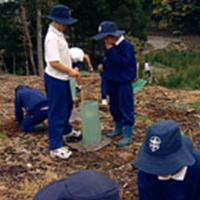
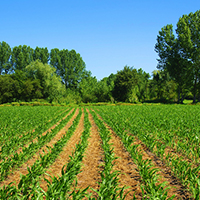
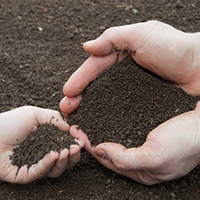

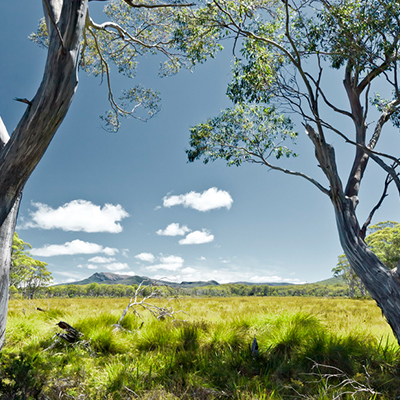
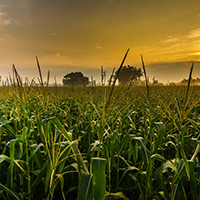
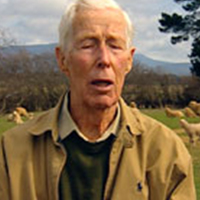
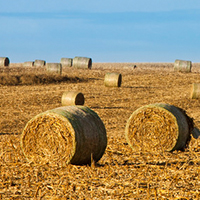
Please Consider a Donation
Donations made to The JM Roberts Charitable Trust are conservatively invested to generate a sustainable stream of income to fund environmental conservation projects. The JM Roberts Charitable Trust is endorsed as a Deductible Gift Recipient (DGR) from 01 June 2003. All donations over $2 to the Trust are tax deductible.

